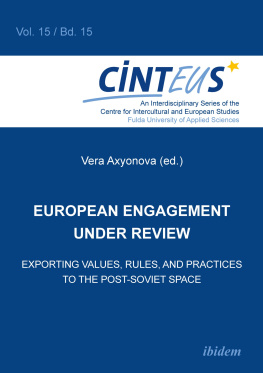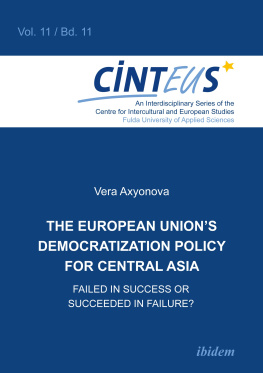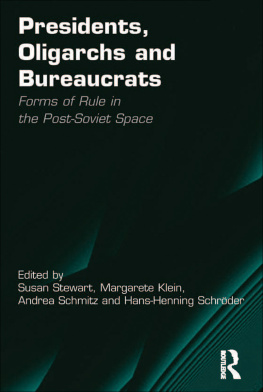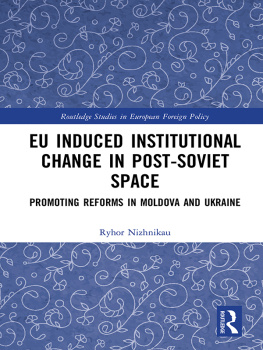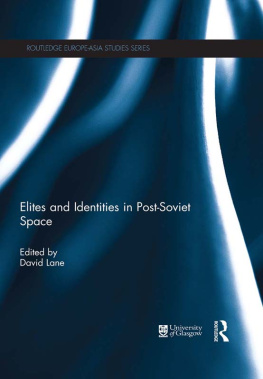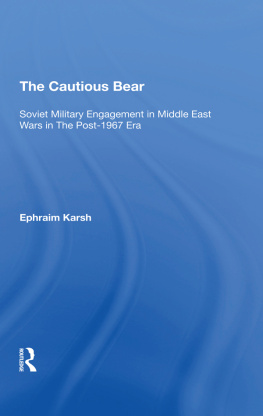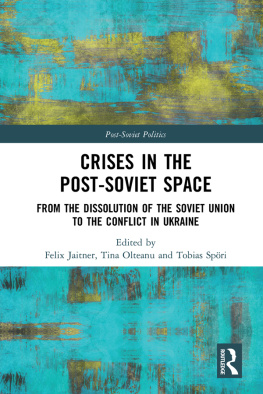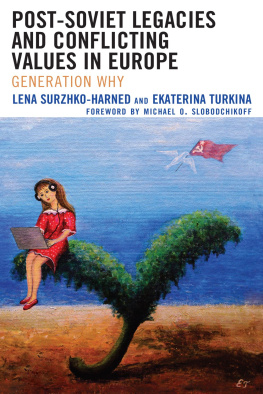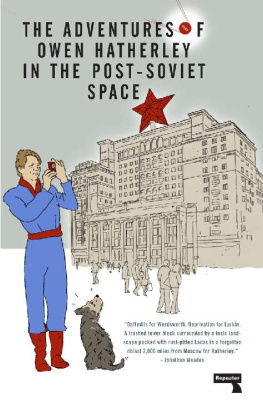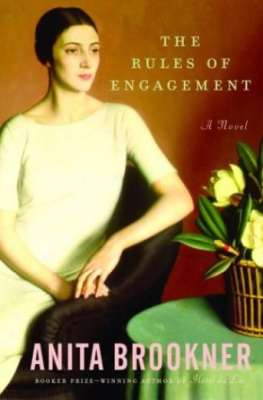Editorial
This series is intended as a publication panel of the Centre of Intercultural and European Studies ( CINTEUS ) at Fulda University of Applied Sci en ces. The series aims at making res earch results, anthologies, con ference rea d ers, study books and selected qualification theses accessible to the general public. It comprises of scientific and interdisciplinary works on inter- and transculturality ; the European Union from an interior and a global perspe c tive; and problems of social welfare and social law in Europe. Each of these are fields of research and teaching in the Social- and Cultural Studies Fa c ulty at Fulda University of Applied Sciences and its Centre for Intercultural and European S tudies. We also invite contribu tions from outside the faculty that share and enrich our research.
Gudrun Hentges , Volker Hinnenkamp , Anne Honer , Hans-Wolfgang Platzer
Editorial
Die Buchreihe versteht sich als Publikationsforum des Centrums fr inter-kulturelle und europische Studien ( CINTEUS ) der Hochschule Fulda. Ziel der CINTEUS -Reihe ist es, Forschungserg ebnisse, Anthologien, Kon-gress reader , Studienbcher und ausgewhlte Quali fikationsarbeiten einer interes sierten ffentlichkeit zugnglich zu machen. Die Reihe umfasst fachwissenschaft liche und interdisziplinre Arbeiten aus den Be rei chen Inter- und Transkulturalitt, Europische Union aus Binnen- und globaler Pe r spektive sowie wohlfahrtsstaatliche und sozialrechtliche Probleme Europas. All dies sind Fachgebiete, die im Fachbereich Sozial- und Kulturwisse n schaften der Hochschule Fulda University of Applied Sciences und dem angegliederten Centr um fr interkulturelle und Europa studien gelehrt und erf orscht werden. Ausdrcklich ein geladen an der Publikationsreihe mitz u wirken sind auch solche Studien, die nicht 'im Hause' entstanden sind, aber CINTE US -Schwerpunkte berhren und be reichern.
Gudrun Hentges , Volker Hinnenkamp , Anne Honer , Hans-Wolfgang Platzer
Acknowledgements
This volume evolved from the young researchers workshop " An exercise in normative and real power: Promoting European values in the post-Soviet space " , held at Fulda University of Applied Sciences, Germany, in October 2013. I would like to thank the German Academic Exchange Service ( DAAD ) for sponsoring this event, which brought together young scholars from Germany and former Soviet states.
I am also indebted to the Centre for Intercultural and European Studies and the Department of Social and Cultural Studies at Fulda University, who supported the organisation of the workshop and this publication. I am pa r ticularly grateful to Prof. Dr. Hans-Wolfgang Platzer for his support and i n sightful comments that helped to develop the volume to its present shape.
I would further like to express my appreciation to everyone who provided valuable feedback on the concept of the volume and individual chapters, especially to Olga Burlyuk , Eamonn Butler, Eduard Klein, and Alla Le u kavets . I am grateful to Bastian Heck for his editorial assistance in putting this book together and to Nate Breznau for his excellent work on proofrea d ing the text that went far beyond language-related aspects. Special thanks go to all workshop participants, also those who are not represented in this volume. Finally, I would like to thank my fellow contributors for their intelle c tual effort, fruitful cooperation, and extensive patience.
Vera Axyonova
October 2015
On the export of European values, rules and practices:
Introducing the debate
Vera Axyonova
A spread of values, rules and practices across time and space is not a new research field. It has been viewed by scholars with different perspectives, involving a variety of conceptual and methodological approaches. A su b stantial literature evolved around this phenomenon addressing it as a pr o cess of transfer of rules and policies, i.e. " a process in which the knowledge about policies, administrative arrangements, institutions etc. in one time and/or place is used in the development of policies, administrative a r rangements and institutions in another time and/or place " (Dolowitz & Marsh, 1996, p. 344). Following this definition, the objects being transferred are not limited to rules and policies and may include instruments, instit u tions and structures, but also more general ideas, values and conceptions of " normal " (Manners, 2002, p. 239).
A range of actors may participate in the process of transfer, both as aggr e gate entities such as supra-national institutions, state agencies, political parties and civil society organisations, and as individuals, e.g. elected off i cials, civil servants, members of pressure groups, and policy entrepreneurs (Dolowitz & Marsh, 1996, p. 345). Depending on the role of these actors and the instruments they use, scholars distinguish various types of transfer mechanisms. These range from processes of diffusion (that lack any speci f ic agency) and lesson-drawing (a voluntary adoption of ideas, norms or po l icies from without) to socialisation or social learning (a process in which a socialiser is attributed with a more active role as a facilitator or instructor), and active promotion of policies wherein promoters may go as far as coer c ing their targets into the adoption of these policies. [1]
While the process of transfer in its various forms is central to this volume, we have deliberately chosen to use a somewhat more narrow term of e x port in its title. The reason is the emphasis of this term on the existence of origin and destination in the process of (a cross-border) transfer, which is of particular interest to authors of this volume. In addition, the concept of e x port implies a presence of actors who (equally) participate in the process, i.e. exporters and importers. It grants these actors greater and more speci f ic roles than the frameworks of diffusion or lesson-drawing could allow. At the same time, while exporters remain in the spotlight, importers are not deprived of agency. Export is thus not limited to promotion, which ascribes an intrusive nature to one part of actors by distinguishing between promo t ers (subjects) and their targets (objects) in the process of transfer.
Drawing on these concepts, the book seeks to contribute to the scholarly debate on transfer of values, rules and practices to former Soviet countries by mapping the multi-faceted engagement of various European actors both in active promotion and facilitation in this broader region. Among the European actors, the European Union (EU) is a frontrunner in terms of the number of publications that address European involvement in transfer pr o cesses. Reviewing them all would be an impossible task for this brief intr o ductory chapter, but several major works need to be mentioned. Burlyuk (2013, pp. 29 31) identifies among them those that apply the concept of isomorphism developed within organisational theory to explain policy diff u sion within the EU (Radaelli, 2000), approach institutions (including the EU) as promoters and sites of socialisation (Checkel, 2001, 2005), and make a strong case for conditionality policies in explaining rule transfer through the EU external governance (Schimmelfennig & Sedelmeier, 2004).
Starting with the enlargement debate, a vast literature emerged on the modes and mechanisms of EU rule transfer and EU transformative power, both within the process of accession of new member states and beyond. A specialised cluster focuses on the role played by and transfer of values and principles in EU foreign affairs (e.g. Manners, 2002; Lucarelli & Manners, 2006; Cremona, 2011), while a considerable number of studies are devoted specifically to the EU ' s promotion of democratic and human rights norms (Schimmelfennig, Engert, & Knobel, 2002; Fierro, 2003; Kubicek, 2003; Brzel & Risse, 2004; Vachudova, 2005; Jnemann & Knodt, 2007; Fre y burg, Lavenex, Schimmelfennig, Skripta, & Wetzel, 2009, to name just a few). These studies reveal that neither EU documents nor scholarly liter a ture provide a clear differentiation between the concepts of values, norms and principles that are promoted by the EU. In fact, these terms are often used interchangeably (Cremona, 2011, pp. 280 281; Ghazaryan, 2014, p. 17) and commonly include (yet are not limited to) liberty, democracy, r e spect for human rights, rule of law, and good governance. These values [2] are also central to this volume. Although the transfer of European rules and practices in other spheres, such as higher education and migration ma n agement, that are illustrative of the European engagement in post-Soviet countries, are equally included in selected chapters.

